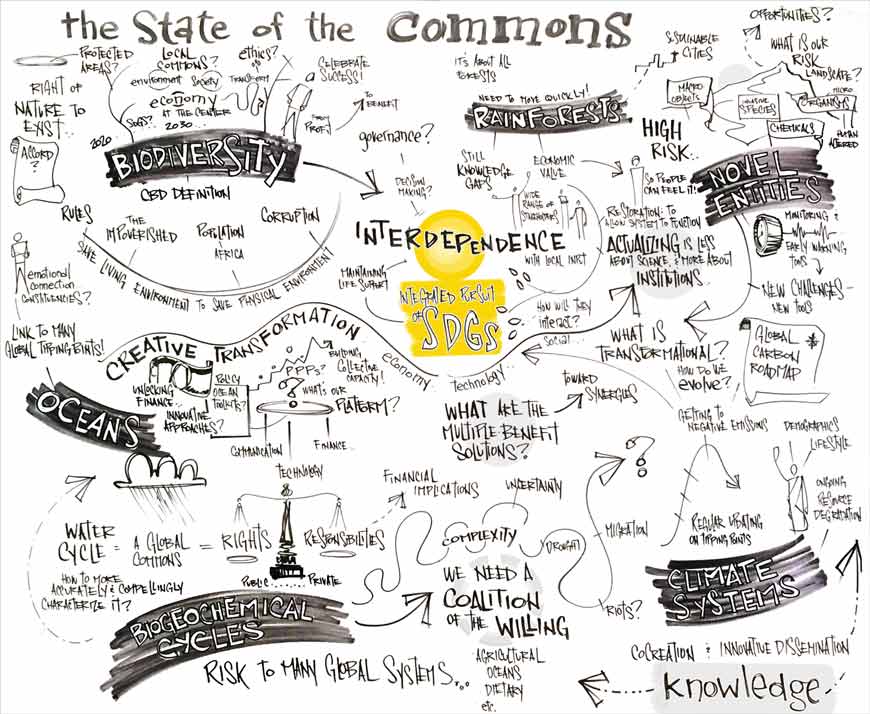Look at this mind map (from the GEF site). It conceptualises the state of the Global Commons. The thing I kept thinking about during Ragupathi & Creelman’s podcast, David Wiley’s Ted Talk and Dave Cormier’s primer on MOOCs and while reading Chapter 11 in Teaching in a Digital Age.

I mean, yes, other thoughts came up too, especially about my own open ed practices and where I see myself going in future. And I’ll get to those in a future post. But here, I’ll focus on how this topic aligns with the core of who I am and what I believe. Not just as an educator. Not just as a conservation biologist. Not just as an environmentalist. As a person.
In my year 1 environmental-studies course, I use a class activity to introduce students to the Tragedy of the Commons. If you’re unfamiliar with it, I’m talking about the reality that while many resources are (ethically speaking) freely available to all, the selfish pursuit of personal gain essentially renders them inaccessible to many. Especially to people who need them most. And the more money you have, the greater your ability to pursue your own personal gain and deplete these resources. And by ‘you’, I mean individuals, corporations and governments.
Manifestations include phenomena such as land & water grabbing and the consequent removal of rights from previous users of the resources, often indigenous and other marginalised peoples who can scarcely afford alternatives. They include corporations polluting soils and waters that people rely on for their daily activities and livelihoods, resulting in massive harm to communities (e.g., the famous Love Canal case). It all boils down to environmental injustice.
Well, throughout my consumption of the ONL materials for this topic, I couldn’t help thinking about how similar this is to the elitism of HE. It occurs on a global level, i.e., restricting access to students who can afford it or who have high enough grades to earn scholarships, while leaving most people, especially in less affluent neighbourhoods, cities and countries, in the dust. After all, there’s a clear link between affluence and educational attainment, including via the practice of grade inflation. And it occurs in Singapore and at NUS due to deeply entrenched practices, such as high admission cutoff scores, the “buying” of access to more prestigious primary and secondary schools, etc.
The thing is, this (priority access to HE education by the elites) undermines sustainability goals given knowledge that as a population (especially girls and women) becomes more educated, the total fertility rate declines. And curbing population growth sooner rather than later is key to our survival. But also (and perhaps more fundamentally), my ethics tell me money shouldn’t buy knowledge. That knowledge is part of the Global Commons.
For me, the most powerful message in all the recommended materials was delivered by Johanni Larianko, 11.5 minutes into the podcast: “If knowledge is power, then that knowledge should be distributed as widely as possible.”
Take another look at the mind map. Specifically at the bottom corner. Clearly, I agree that “knowledge should be considered a common good and be accessible as openly as possible”.